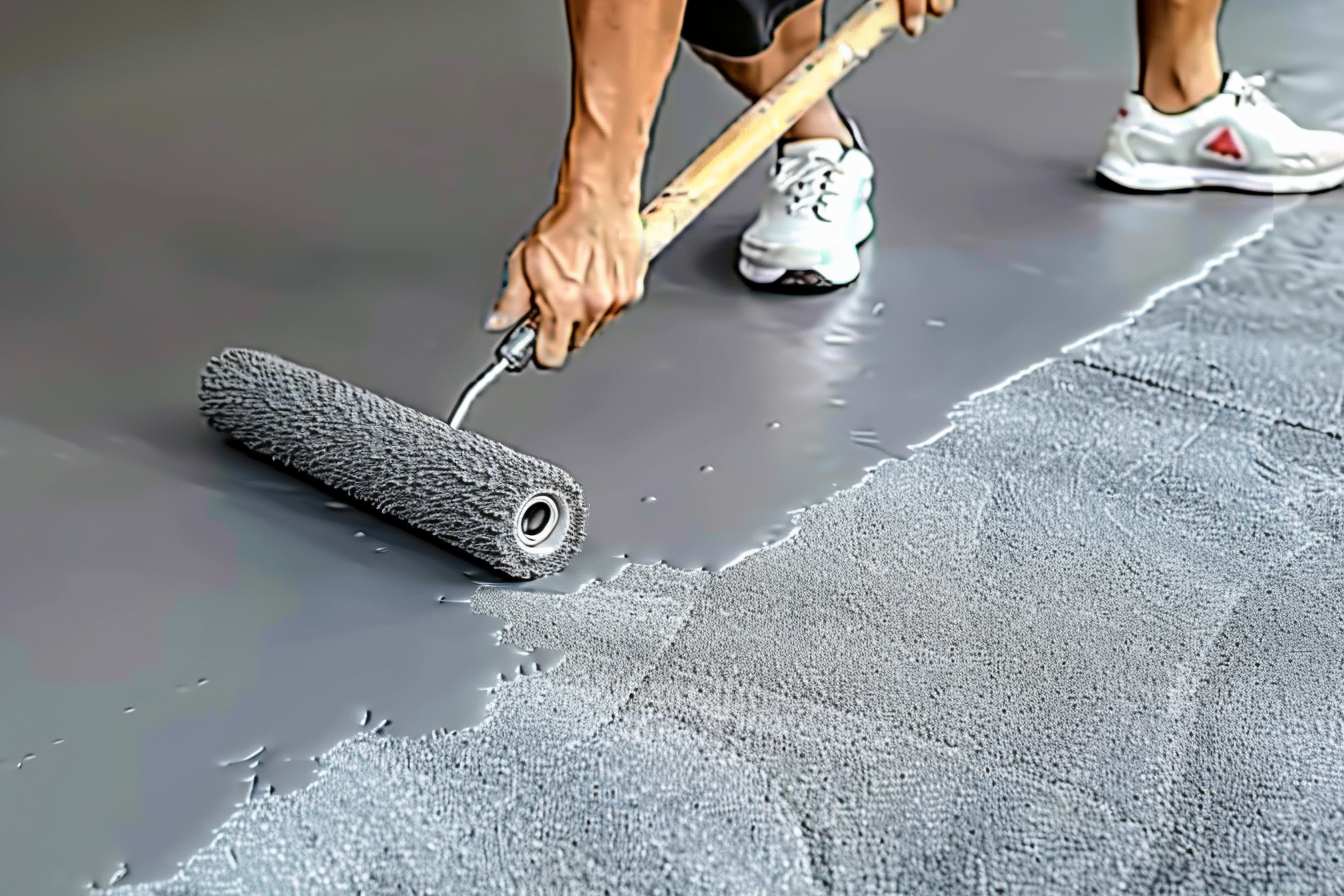What Are the Pros and Cons of Epoxy Garage Floors?
Thinking about upgrading your garage? Epoxy flooring transforms dull concrete into a sleek, durable surface that resists stains, cracks, and wear. This guide breaks down the costs, benefits, and maintenance tips for epoxy floors—so you can decide whether to DIY or hire a professional for a long-lasting, showroom-quality finish.

Garage floors endure significant wear and tear from vehicles, tools, chemicals, and weather exposure. Traditional concrete surfaces often develop cracks, stains, and deterioration over time, leading many homeowners to explore protective coating options. Understanding the complete picture of epoxy flooring helps ensure you make an informed decision for your garage renovation project.
Benefits of Epoxy Floors for Garages
Epoxy garage floors offer numerous advantages that make them an attractive option for many homeowners. The primary benefit is exceptional durability, as properly installed epoxy can withstand heavy vehicle traffic, dropped tools, and chemical spills without damage. The seamless surface prevents dirt, oil, and debris from penetrating the concrete, making cleanup significantly easier than uncoated floors.
The aesthetic appeal of epoxy floors cannot be overlooked. Available in various colors, patterns, and finishes, epoxy transforms dull concrete into an attractive surface that enhances your garage’s overall appearance. The glossy finish reflects light, brightening the space and creating a more professional look. Additionally, epoxy floors resist moisture, preventing mold and mildew growth while providing better protection against freeze-thaw cycles.
Drawbacks and Limitations of Epoxy Coatings
Despite their benefits, epoxy floors have several limitations that homeowners should consider. Installation requires careful surface preparation, including concrete grinding, crack repair, and thorough cleaning. Poor preparation often leads to coating failure, peeling, or bubbling. The application process is also time-sensitive and weather-dependent, requiring specific temperature and humidity conditions for proper curing.
Epoxy floors can become slippery when wet, creating safety concerns in garages where water, snow, or spills are common. While anti-slip additives can help, they may reduce the coating’s smooth appearance. Hot tire pickup is another concern, where hot tires from recently driven vehicles can soften the epoxy and cause peeling or marking. Additionally, epoxy floors may yellow over time when exposed to UV light, though this is less problematic in enclosed garages.
Epoxy vs Polyaspartic Flooring Comparison
When comparing epoxy to polyaspartic flooring, several key differences emerge. Polyaspartic coatings cure much faster than epoxy, often allowing same-day installation and vehicle traffic within hours rather than days. This quick cure time makes polyaspartic less sensitive to temperature and humidity variations during application.
Polyaspartic coatings offer superior UV resistance, maintaining their color and clarity better than epoxy over time. They also provide better flexibility, reducing the likelihood of cracking as the concrete expands and contracts. However, polyaspartic systems typically cost more than epoxy and require professional installation due to their fast cure time, which leaves little room for error during application.
| Coating Type | Provider Examples | Cost Estimation | Key Features |
|---|---|---|---|
| Standard Epoxy | Rust-Bullet, KILZ | $3-7 per sq ft | Durable, chemical resistant, DIY-friendly |
| Professional Epoxy | Sherwin-Williams, Benjamin Moore | $8-15 per sq ft | Enhanced durability, professional installation |
| Polyaspartic | Penntek, ArmorPoxy | $10-20 per sq ft | Fast cure, UV stable, temperature flexible |
| Hybrid Systems | Garage Force, Hello Garage | $12-25 per sq ft | Combined benefits, lifetime warranties |
Prices, rates, or cost estimates mentioned in this article are based on the latest available information but may change over time. Independent research is advised before making financial decisions.
Epoxy Garage Flooring Cost Guide
The cost of epoxy garage flooring varies significantly based on several factors including floor size, coating quality, surface preparation requirements, and installation method. DIY epoxy kits typically range from $50 to $200 for a standard two-car garage, while professional installation can cost $1,500 to $5,000 or more for the same space.
Surface preparation represents a significant portion of professional installation costs, especially if extensive concrete repair is needed. Factors affecting pricing include the need for crack repair, oil stain removal, concrete grinding, and moisture mitigation. Higher-end systems with decorative flakes, metallic effects, or multiple coats increase costs but provide enhanced durability and appearance.
Making the Right Choice for Your Garage
Choosing the right garage floor coating depends on your specific needs, budget, and expectations. Consider factors such as climate conditions, intended garage use, aesthetic preferences, and maintenance requirements. If you frequently work on vehicles or use harsh chemicals, the chemical resistance of epoxy makes it an excellent choice. However, if you live in an area with extreme temperature variations or want the fastest installation possible, polyaspartic might be worth the additional investment.
Evaluating your DIY skills honestly is crucial, as improper installation can lead to coating failure and costly repairs. Professional installation typically includes warranties and ensures proper surface preparation, but significantly increases the total project cost.
Epoxy garage floors offer substantial benefits including durability, easy maintenance, and improved aesthetics, making them a popular choice for garage renovations. However, potential drawbacks such as installation complexity, slipperiness when wet, and sensitivity to hot tires require careful consideration. By understanding both the advantages and limitations, along with comparing alternatives like polyaspartic coatings, homeowners can make informed decisions that best suit their specific garage flooring needs and budget constraints.




